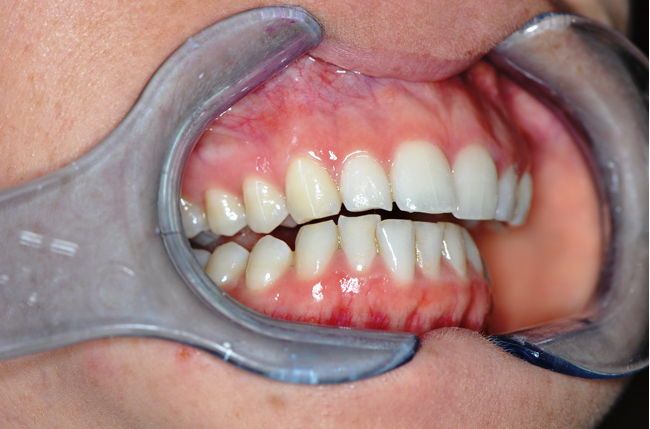Bruxism
Bruxism Management Applecross
Many studies have been done on Bruxism and figures vary from 5% to 95% of the population grind their teeth! It can happen (mainly) during sleep or in some cases during waking hours.
Bruxism is the act of grinding one’s teeth together. This is not a new phenomenon – there are some 7 references for this activity in the Bible.
Indications for Bruxism
Unfortunately, most people are totally unaware if they grind their teeth. Only very few people can tell they do it. In some cases, family members are able to tell you if they hear it while you are asleep.
One sign is tenderness in the muscles of the jaw. Nocturnal grinding is like an 8-hour gym work out. Imagine doing bicep curls for 8 hours! How would your arm muscles feel and look? Probably large and sore! In the case of our jaws, our muscles can become very sore and create headaches.
It is often the case that people that grind their teeth also have other sleep disorders so specialised sleep studies may be required. If you also are a snorer and have sleep apnoea you could possibly grind.
The commonest sign of grinding is premature wear on teeth. Often this is seen in the form of chipping on the front teeth.
It may take a while for the thin enamel coat of the teeth to wear away but as soon as the softer dentine is exposed, the tooth will wear very quickly and may be noticeable to yourself or family and friends. Teeth may also look very small and a good comparison can be made by looking at old photos.
Example of teeth having been ground together

Damaged teeth from grinding before

Damaged teeth from grinding after
Temporomandibular Joint Dysfunction (TMD or TMJ)

TMJ is short for temporomandibular joint and is the hinge that holds the bottom jaw anchored to the base of the head. It can be felt by placing your fingers in front of the ear canal and opening and closing the jaw.
TMD (temporomandibular dysfunction) is a condition where the actual jaw joint and or the muscles used for chewing are painful and the whole complex is not functioning in its proper manner. This can be quite unpleasant as it is a joint that moves constantly. It moves when we talk when we eat and when we swallow.
Many patients have clicking sounds from the joint when they open or close the jaw which can be caused by a small disc as it “pops” in and out of its socket.
Bruxism Management in Applecross
If undiagnosed and untreated, bruxism may lead to long-term dental wear and damage – hence the need for further dental treatment to try to correct the damage caused.
If you or your loved ones suspect that you are a bruxer, please call your Applecross dentist and schedule an appointment.
To find out more about bruxism management in Applecross, please contact us today at (08) 9316 0555.
We are located at 729 Canning Hwy in Applecross WA.
Frequently Asked Questions
What is bruxism?
Bruxism, also called night grinding, is a condition in which a person grinds or clenches their teeth while sleeping.
Bruxism is one of the most common sleep disorders. Most people have a mild form of night grinding at some point in their lives.
What causes bruxism?
Night grinding is often a result of stress and anxiety. Irregular alignment of the upper and lower teeth is also a common cause of bruxism.
It is important to break or manage the habit of grinding as soon as possible to prevent long-term damage to your teeth.
How do I know if I have bruxism?
Most people who grind their teeth are not aware they do so. Often, a loved one makes them aware, having to observe or heard the grinding during sleep.
Dentists look for signs of grinding by detecting dental wear and receding gumlines. Bruxism is most often the main cause of headaches.
The common symptoms of bruxism include:
- Head and neck pain
- Jaw or dental pain
- Dental damage
- Tooth fractures
- Gum recession
- Insomnia
If you grind your teeth or suspect to grind your teeth at night, come to our office for a consultation on bruxism management in Applecross.
How do fluoride treatments work?
During a fluoride treatment, your Applecross dentist will paint a fluoride-rich liquid on each tooth. This is left in place for a few minutes, then rinsed away to remove excess fluoride from the teeth.
Then, the high levels of fluoride help absorb healthy minerals to the teeth enamel and strengthen the tooth over time.
